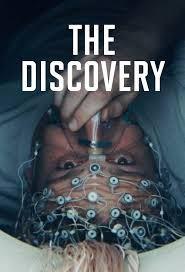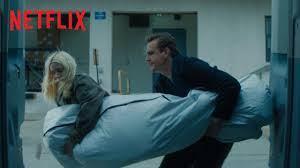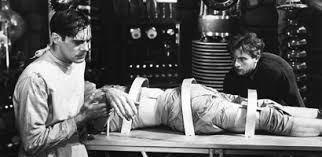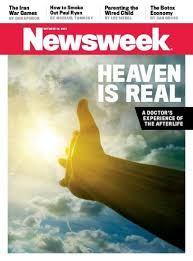 Our daughter recommended seeing this Netflix film, “The Discovery.” It starts with scientist Thomas Harbor (Robert Redford) giving a rare interview about his discovery proving that we go somewhere after death.
Our daughter recommended seeing this Netflix film, “The Discovery.” It starts with scientist Thomas Harbor (Robert Redford) giving a rare interview about his discovery proving that we go somewhere after death.
This has precipitated a wave of suicides. Asked if he feels responsible, Harbor simply says “no.” Then a man shoots himself right in front of him.
Next, cut to Will and Ayla (“Isla” according to Wikipedia) who meet as the lone passengers on an island ferry. Talk turns to “the discovery.” Will is a skeptic who doesn’t think it’s proven.
Turns out Will is Harbor’s estranged son, traveling to reconnect with him at Harbor’s island castle. Where he runs a cult peopled with lost souls unmoored by “the discovery.” While continuing his work, trying to learn where, exactly, the dead go.
Meantime, people keep killing themselves, aiming to “get there” — wherever “there” is. Will saves Ayla from drowning herself and brings her into the castle.

So Will — his skepticism now forgotten — and Ayla steal one from a morgue. This is where the film got seriously silly. (Real scientists nowadays aren’t body snatchers.)

This doesn’t work either. At first. But later, alone in the lab, Will finds a video actually had gotten extracted from the corpse’s brain. Now he’s on a mission to decode it.

One review faulted the film for mainly wandering in the weeds of relationship tensions rather than really exploring the huge scientific and philosophical issues. I agree.
The film’s metaphysical incoherence goes with the territory of “proving” an afterlife. There was no serious effort at scientific plausibility, which would be a tall order. Mind and self are entirely rooted in brain function. When the brain dies, that’s it.
The film didn’t delve either into the thinking of any of the folks who committed suicide, which would have been interesting. After all, many millions already strongly believe in Heaven, yet are in no hurry to go. But, as I have said, “belief” is a tricky concept. You may persuade yourself that you believe something, while another part of your mind does not.
The film’s supposed scientific proof presumably provides the clincher. Actually, religious people, even while professing that faith stands apart from questions of evidence, nevertheless do latch on to whatever shreds of evidence they can, to validate their beliefs.

I doubt it. Most people have a shaky conception of science, with many religious folks holding an adversarial stance toward it. Science is, remember, the progenitor of evolution, which they hate. Meantime — this the film completely ignored — religionists generally consider suicide a sin against God. Surely that can’t be your best route to Heaven!

